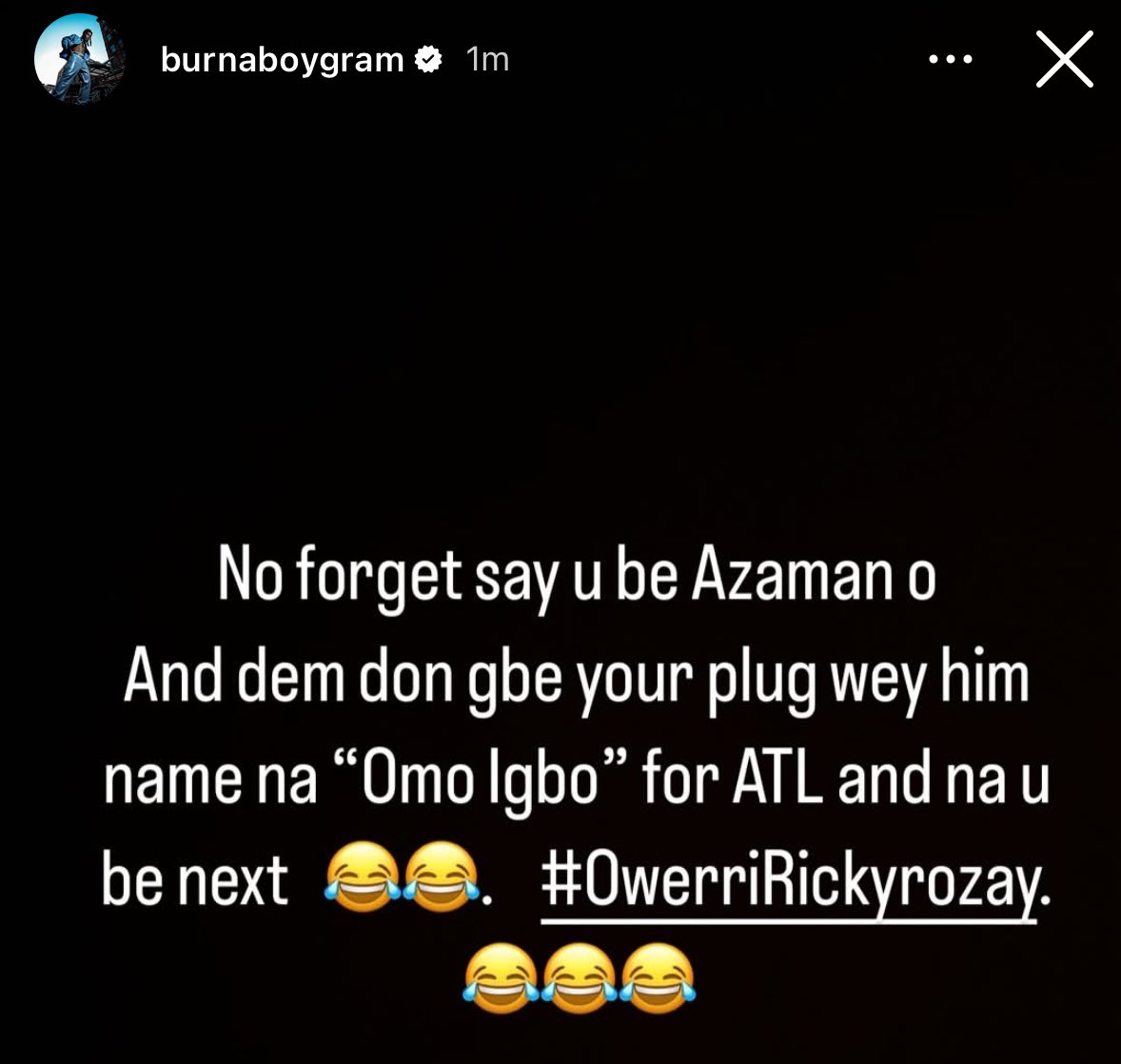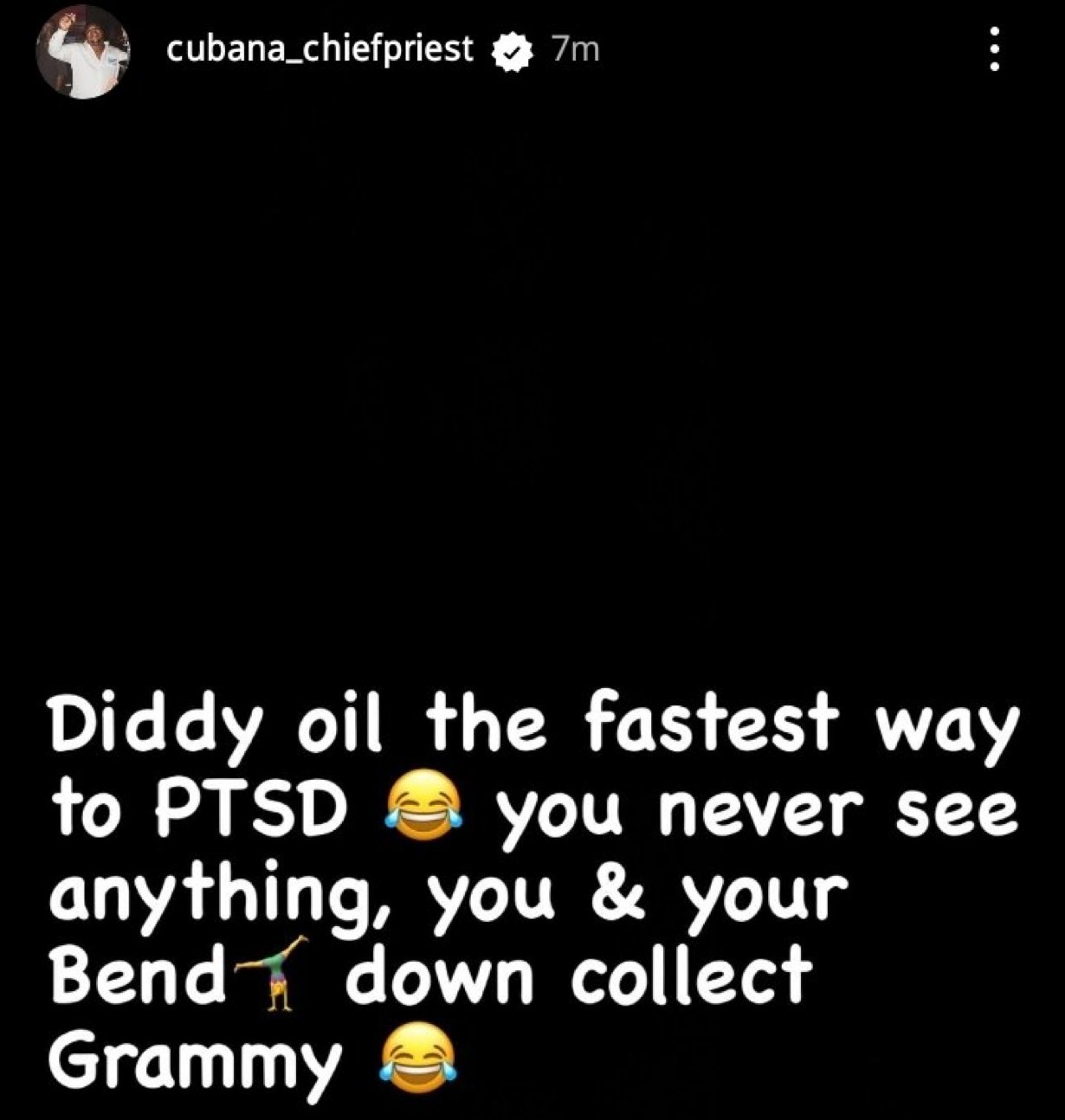Social media platforms erupted with excitement as Grammy-winning artist Burna Boy and popular socialite Cubana Chief Priest engaged in an unexpected war of words, drawing attention from fans and critics alike. The confrontation began when Burna Boy made a cryptic post that appeared to target the celebrity barman, using the nickname “Owerri Rick Ross” in what many interpreted as a derogatory reference.
The African Giant’s initial post contained veiled threats and references that suggested inside knowledge of certain situations, particularly mentioning someone named ‘Omo Igbo’ in Atlanta. This seemingly innocuous post quickly escalated into a full-blown social media confrontation when Cubana Chief Priest, known for his close association with Davido, responded with his own series of pointed messages.
Rather than backing down, Cubana Chief Priest hit back with controversial claims about Burna Boy’s Grammy win, suggesting involvement from American music mogul Diddy. His response included references to “Diddy oil” and what he described as a “bend down collect Grammy,” phrases that quickly caught fire across social media platforms and became instant viral moments.
The exchange has highlighted underlying tensions within Nigeria’s entertainment industry, particularly the complex relationships between artists, industry figures, and their respective camps. The mention of Davido, though indirect, adds another layer to the ongoing narrative of rivalry and allegiances within the Afrobeats scene.
 What makes this confrontation particularly noteworthy is its timing and the caliber of personalities involved. Burna Boy, fresh from international success and recognition, finds himself engaged in a domestic dispute with Cubana Chief Priest, who has built his own significant influence in Nigeria’s social and entertainment circles.
What makes this confrontation particularly noteworthy is its timing and the caliber of personalities involved. Burna Boy, fresh from international success and recognition, finds himself engaged in a domestic dispute with Cubana Chief Priest, who has built his own significant influence in Nigeria’s social and entertainment circles.
The public nature of this exchange has sparked discussions about professionalism in the entertainment industry and the role of social media in amplifying personal disagreements. Some observers view these public spats as unnecessary distractions from the artists’ creative work, while others see them as part of the modern entertainment landscape where personal and professional lives often intersect publicly.
Social media reactions to the exchange have been mixed, with fans taking sides and others viewing the entire situation as entertainment industry theater designed to maintain relevance and public interest. The creative insults and references used by both parties have already entered popular culture, with phrases like “bend down collect Grammy” becoming instant social media catchphrases.
Beyond the immediate drama, this incident raises questions about the nature of success and recognition in the Nigerian music industry. Cubana Chief Priest’s comments about Burna Boy’s Grammy win touch on sensitive topics about international validation and the paths Nigerian artists take to achieve global recognition.
The involvement of various industry figures and the references to business dealings and personal relationships suggest that this public disagreement might have deeper roots than what appears on the surface. The mention of high-end purchases and alleged debts adds another dimension to the controversy, hinting at the complex financial relationships that exist within the entertainment industry.
This public clash also demonstrates the evolving nature of celebrity culture in Nigeria, where social media platforms have become battlegrounds for settling scores and maintaining public relevance. The immediate and widespread sharing of these exchanges shows how quickly such conflicts can escalate and capture public attention.
Whether this exchange will lead to more serious consequences or fade away as another episode in Nigeria’s dynamic entertainment scene remains to be seen. However, it has already succeeded in generating significant public interest and discussion about the relationships between various players in the industry.
As the situation continues to unfold, it serves as a reminder of how social media has transformed celebrity interactions and public disputes. What might have once been private disagreements now play out in real-time before an engaged audience, creating instant entertainment and discussion fodder for millions of followers.



